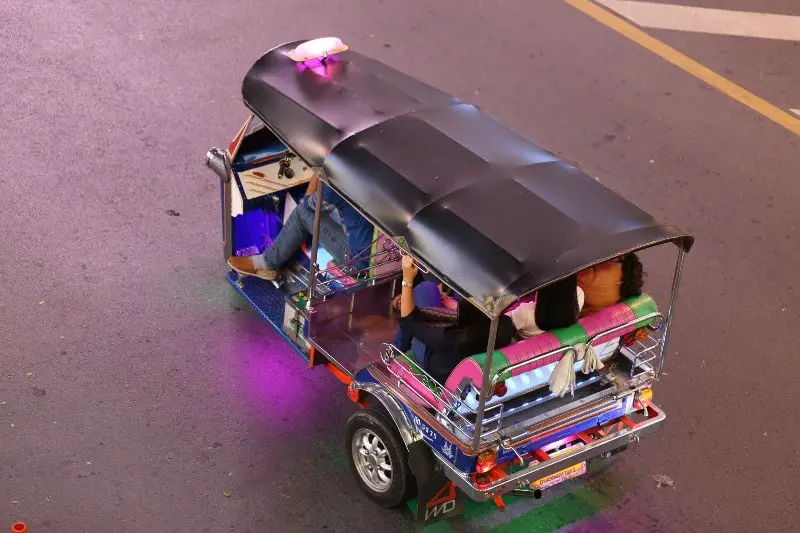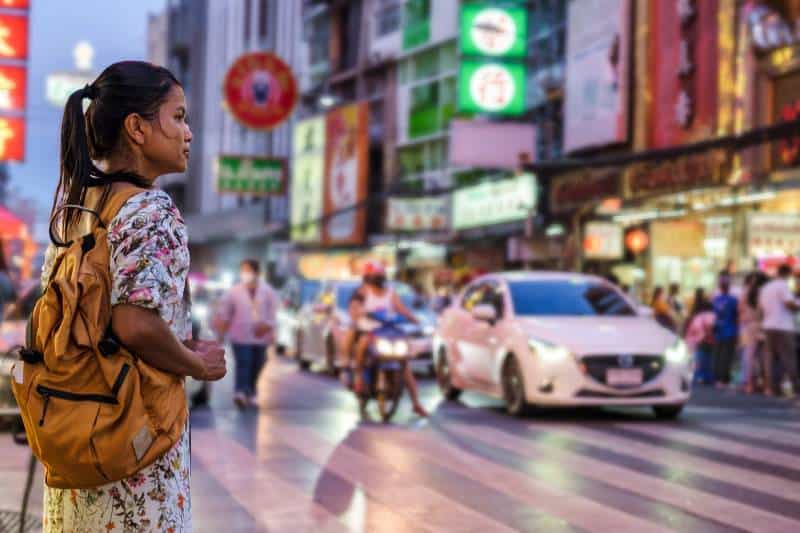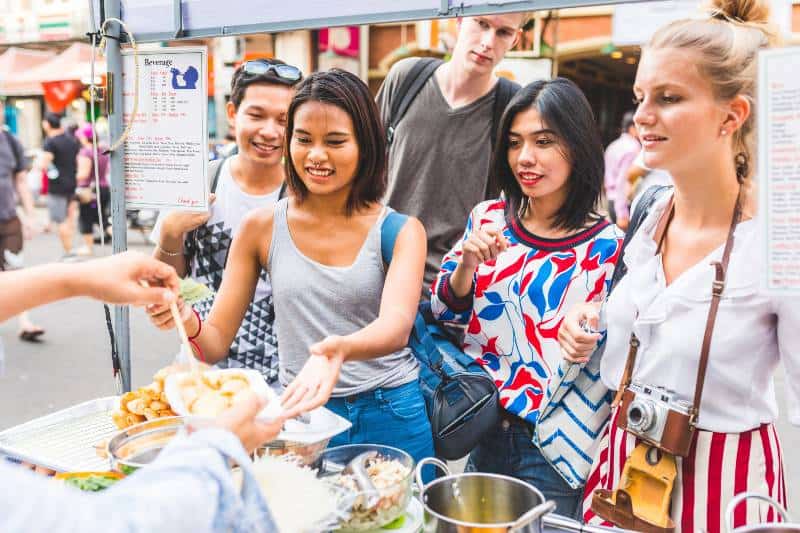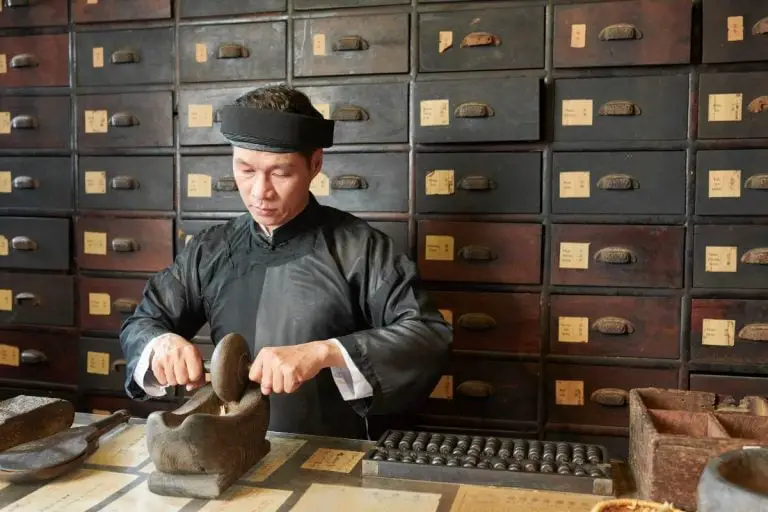Is It Safe To Live In Thailand: The Ultimate Guide
Thailand is a beautiful country with a lot to offer ex-pats. It’s no wonder that so many people are interested in moving here. However, before making the move, it’s essential to ask yourself if Thailand is safe to live in. This guide will answer that question and provide you with all the information you need to make an informed decision. Whether you’re already living in Thailand or are just considering a move, this guide has something for everyone. So, whether you’re looking for safety tips or want to know more if, whether Is it safe to live in Thailand, keep reading!
The majority of tourists can feel at ease in Thailand. Unlike in many Western countries, there are very few areas that should be avoided at all costs. You won’t have any trouble out on the street because people are friendly and cheerful.
Key Takeaways
- You can be safe in Thailand if you’re careful, but it’s important to know what kind of safety hazards exist there so that you can avoid them.
- It’s easy to travel around Thailand if you have some money saved up and don’t mind spending a little bit on transport costs now and then!
- But before you pack your bags and head to Bangkok, make sure you’re aware of the things that can make life in Thailand less than ideal.

How Safe is Thailand?
While it’s true that Thailand is generally a safe place to visit, there are still some things to be aware of. The most common crime is theft, so it’s important to keep an eye on your belongings when you’re out and about. There have also been instances of tourists being robbed at gunpoint, but these are rare and usually happen in tourist areas where there are lots of people around who can help if something goes wrong.
In addition, Thailand is prone to natural disasters like floods and earthquakes, so it’s important to stay up-to-date on the latest weather conditions before traveling Lastly, visitors should always show respect to the Thai royal family by not taking photos of them or wearing any clothes that feature their image. By following these simple guidelines, you’ll be able to enjoy your trip without worrying about safety.
Thailand is a safe country to live in
Safety is always an important consideration for Thailand ex-pats, especially those who are moving with children. While there are parts of the world that are safer than others, Thailand is generally considered to be safe whether or not you have kids.
Several international organizations have ranked Thailand as one of the safest countries in Asia and are often compared favorably with other popular ex-pat destinations. While Thailand has its share of petty crimes, and rarely some violent crimes, most people who visit Thailand will never encounter any issues at all.
One of the most common crimes committed against tourists involves scams or theft where someone tries to sell you something that isn’t what they claim it is (such as fake gems), or where someone asks for money on behalf of an orphanage or charity organization that doesn’t exist. It’s important to note that these kinds of scams will almost always happen when someone approaches you directly on the street.
Many people who move to Thailand find that the cost of living is very affordable. In addition, the Thai economy is quite stable, which can add to a feeling of safety and security. While there are always going to be areas that are safer than others, in general, Thailand is considered to be a safe place to live, whether you have children or not.
Safety in Thailand: Things to Be Aware of
When you’re planning your trip to Thailand, it’s important to know that things can be a little different than what you expect. This guide will give you the information you need so you can have a safe and enjoyable time during your visit.
Health
Health care in Thailand is generally good. You should, however, make sure you get travel insurance before you leave home. A doctor will be able to give you advice on what vaccinations are required for your trip and may even be able to provide some shots at no cost if they’re available locally.
Routine Vaccines
There are three primary routine vaccines: hepatitis A, hepatitis B, and typhoid. However, if you’re traveling to Thailand and plan on spending extended periods outside or in rural areas, you should consider getting a rabies vaccination as well. Finally, malaria isn’t common in Thailand but is present in certain regions of the country.
Covid 19
To prevent the spread of COVID-19 throughout the country for the majority of 2020, Thailand has declared a state of emergency and closed its borders. Thai authorities have recently relaxed travel restrictions for tourists from other countries.
Visitors to Thailand who have proof of vaccination can now enter the country without undergoing quarantine thanks to the Test and Go Program or the Phuket Sandbox Program. However, those who haven’t gotten the recommended vaccinations must still spend at least 10 days in quarantine, and those from Africa must spend 14.
Pre-travel vaccines and medications
Hepatitis A and b, typhoid, cholera, yellow fever, Japanese encephalitis, rabies, meningitis, polio, measles, mumps, rubella (MMR), Tdap (tetanus-diphtheria and pertussis), chickenpox are all preventable diseases that may be prevented by immunization. This injection will maintain your immunity for two years.
Food and Water-borne Diseases
Although not as well known, there are several diseases that you can contract from mosquitoes while in Thailand. However, tourists should also be wary of what they eat and drink because Hepatitis A and E, as well as common bacterial diarrhea, are all prevalent due to the high number of contaminated Thai food and water sources. To reduce your risk of contracting one of these diseases it is suggested that you only drink drinks with no ice, eat fruits without skin, and thoroughly cooked meats and seafood.
Insects and Illness
Due to the country’s tropical climate, visitors to Thailand are at risk of contracting mosquito-borne tropical diseases like Malaria, Dengue fever, Chikungunya, and Japanese encephalitis.
There is currently no vaccine or drug available to combat Dengue, Chikungunya, or Japanese Encephalitis; therefore, the best way to avoid getting sick from these viruses is to take preventative measures, such as wearing long sleeves and using mosquito repellent with a high dosage of DEET.
Yellow fever
Infected mosquitoes spread yellow fever, an acute viral hemorrhagic disease. There is a safe and inexpensive vaccine available to prevent yellow fever. To provide lifelong protection against yellow fever, only one dose of the vaccine is required. You may need to get a booster shot of the vaccine every ten years, or more frequently if your doctor so prescribes it.
Eighty to one hundred percent of vaccinated individuals develop protective immunity within 10 days, and more than 99 percent develop immunity within 30 days. To prevent contracting yellow fever, visitors to endemic areas, such as those in Central Africa and South America, are advised to get vaccinated at least 10 days before departure. Countries can request proof of yellow fever vaccination from visitors through the IHR. Medical exemptions from vaccination are allowed but must be verified by a doctor’s note or another official document.
Public transportation
BTS (Skytrain)
The Bangkok Mass Transit System Public Company Limited operates the BTS Skytrain, also known as Rod Fai Fa by Thais (BTSC). You can get anywhere in the city quickly using this method. however, it does not yet reach every part of Bangkok.
There are currently 35 stations along the BTS Skytrain’s two lines. The first line, known as the Sukhumvit line, extends from the Mochit station in the north to the Samrong station in the east. The Silom Line is the alternative.
Beginning at Bang Wa station on the Thonburi side, it travels through the neighborhoods of Sathorn and Silom before arriving at National Stadium. Siam Station, the busiest stop on the BTS, serves as the connection between the two lines. The total combined distance of the two lines is 37.6 kilometers (23.4 miles).
The BTS sky train is widely regarded as one of Bangkok’s most dependable and hassle-free public transportation options. The majority of the most crowded regions are covered by the network. During rush hours (between 7 and 9 in the morning and 4 and 7 in the evening), the train is likely to be very crowded. If the train is too crowded, allow yourself some extra time to miss it.
MRT (Underground Train System)
The Mass Rapid Transit (MRT) network in Bangkok serves 18 stations and stretches for 20 km, connecting Hua Lamphong in the south (near Chinatown) to Bang Sue in the north. Fast and efficient trains arrive every 5-7 minutes, allowing commuters to connect with the BTS Skytrain at Sukhumvit and Silom stations.
Trains
The fastest way to get around Thailand is by plane, which is great except for one major drawback. While speed is desirable, it will come at the expense of your ability to take in the sights. One of Thailand’s biggest draws is the country’s breathtaking scenery, and one of the best ways to see it is from the window of a train.
It is also possible to make reservations in advance via reputable Thai travel agencies like Thailand Train Ticket or Royal Exclusive Travel, or via the online travel agency 12goasia. When planning a trip to Thailand during the high season or on a national holiday, booking an airplane isn’t the only option for getting around the country.
Tuk-Tuks
Tuk-tuks are the most common form of public transportation in Thailand. These three-wheeled vehicles are a lot like taxis, but they’re cheaper and more fun to ride in. Some people choose to use them as their main means of transportation, but most tourists just use them to get around town.
Buses
If you’re looking for a cheap and dependable way to get around Thailand, taking the bus is a great option to consider. Thailand’s buses, in contrast to the country’s trains, are almost always on time. If you’re the type to venture off the beaten path, you’ll be pleased to know that the bus service in Thailand reaches far into the country’s rural interior.
Among the many modes of public transportation available in Thailand, buses offer a wide range of options. What you pay for in terms of speed and comfort is what you get. Most city buses are orange and lack air conditioning. It is also common to find private bus companies.
They start at a lowly second class and go all the way up to a super VIP level. Buses for the upper classes have restrooms, televisions, and comfortable reclining seats. A hot meal is served on some of them, and that’s all included in the price of the ticket. Regarding VIP bus services in Thailand, two of the most well-respected companies are The Transport Company and Green Bus Company.
Traveling by bus at night should be avoided at all costs. Some Thai bus drivers have been caught using amphetamines to get through their shifts, despite the many obvious dangers this poses. We also recommend avoiding “backpacker buses,” which are just tourist buses. These are the incredibly affordable bus services on Khao San Road in Bangkok. Other major cities in Thailand also host equivalent establishments. Passengers on these services are subjected to overcrowding, drivers who are high on drugs, and the storage of their luggage in notoriously insecure luggage bays where valuables are frequently stolen.
For extended bus journeys, we advise purchasing tickets at the terminal itself. By doing so, you can select from the widest range of options along your route and avoid the scammers that tend to congregate near certain hostels. However, 12goasia can also be used to reserve bus seats.
Marine transportation
There are two ways to reach the numerous stunning islands that dot the coast of Thailand. To get to the islands of Koh Samui and Phuket, you can either take a flight or a ferry. There is a wide variety of ferries in Thailand, from large vessels capable of carrying vehicles to rickety rafts powered by outboard motors. The vast majority are run by private companies, and the quality and cost of each crossing vary widely.
Similarly, ferries in Thailand have a mixed reputation for safety. Many have gone down in the past due to overcrowding and drunken sailors, and the problem persists today. However, the odds of you being on one that’s going down are extremely low. But don’t let that make you stupid. You should probably wait to board another ferry if the one you were planning on taking is a rusting, leaning, overcrowded, or alcohol-impaired vessel that is setting sail into a storm.
Your hotel’s front desk or a local agency is the best place to buy ferry tickets. It’s simple to fall victim to online ferry ticket scams, and even legitimate website vendors may charge you for services you don’t need. A reservation is typically not required, but if you plan on attending a full moon party or just want some extra peace of mind, you may want to buy your tickets in advance.
Road safety in Thailand
Thailand, located in the middle of South East Asia, is a thriving and exciting country with lots to offer foreigners. However, 478 people lost their lives on the roads over the New Year period in 2017 according to a recent article from the BBC.
Unfortunately, ex-pats in Thailand face a significant risk from road accidents, as they do in many developing countries.
In this report, we will explore the alarming rate of traffic accidents in Thailand, offer suggestions for how foreigners can stay safe on the road, and discuss why international medical coverage is essential for ex-pats living there.
Road safety
For both work and retirement, many foreigners choose Thailand as their location of choice. You shouldn’t let the increased frequency of road accidents dampen your enthusiasm for living in Thailand. Advice for common sense road safety in Thailand, for foreigners living there:
- Driving in Thailand requires adhering strictly to the posted speed limit.
- Don’t be in a hurry to get through stop signs and traffic lights.
- Wearing a helmet while riding a motorcycle or bicycle is required by law but is rarely enforced. Motorcycle accidents, which account for 70% of all traffic fatalities in Thailand, make this a must.
- Visitors from other countries should exercise caution when strolling the streets of Bangkok.
- It’s best to avoid doing any kind of riding or driving at night, when visibility is lower and the chance of an accident is higher.
- Do not get on a quad bike because of the risks involved and the fact that it is against the law.
- For more information on road safety abroad, visit the UK Foreign Office website.
- Make sure you have international medical coverage before entering Thailand and hitting the roads. If you plan on riding a motorcycle, check that your health insurance will cover you.
Toll Ways
In Thailand, there are tollways that you can use to avoid traffic jams. You will have to pay a fee to use them, and there are also different options for payment depending on where in the country you are traveling.
Motorcycles
Motorcycles are a popular choice for transportation in Thailand.
You can rent a motorcycle from the airport, or you can just rent one from a shop in town and drive yourself. It’s easy to get around on a motorcycle because the roads are pretty smooth and there aren’t too many cars on them.
There are also plenty of taxis available for rent or for hire throughout Thailand, which makes it easy to get from place to place when you don’t feel like driving yourself or don’t want to pay for parking at your destination.
Political Tensions
In the year 2020, Thailand was dealing with a severe crisis regarding human rights. The government of Prime Minister Gen. Prayut Chan-Ocha randomly arrested democracy activists, deliberately designed the disintegration of a major opposing party group on politically driven grounds, and imposed a country-wide emergency while using the Covid-19 pandemic as a pretext. In addition, the current regime placed restrictions on civil and political rights, especially freedom of expression.
Demonstrations
Early in the year 2020, demonstrations against the government of Prime Minister Prayut Chan-o-cha got underway in Thailand, sparking the country’s first round of protests. They later broadened their demands to include unprecedented calls for the monarchy in Thailand to undergo reform.

Terrorism in Thailand
Despite the decrease in vulnerability due to COVID-related travel restrictions and border closures, Thailand’s main risk of international terrorism as a transit and enabler hub stems from its large number of passengers through Bangkok and the accessible market for illegal goods.
No transnational terrorist organizations were involved in any attacks in Thailand in 2020; rather, the violence took place in the Deep South, owing to ethno-nationalist insurgencies (the southernmost provinces of Pattani, Yala, Narathiwat, and parts of Songkhla).
Between 2018 and 2021, there was a significant reduction in violent crime across the Deep South. Despite their lack of evidence showing any operational ties between domestic insurgents and global markets, Thai security officials are concerned about foreign terrorist organizations infiltrating indigenous insurgent organizations.
Despite Thailand’s government’s continuous emphasis on internal political problems, it has remained a valuable antiterrorism ally.
Law Enforcement
Scam artists target popular tourist areas in Thailand, like Bangkok, Phuket, and Chiang Mai, because of the high volume of visitors. Posing as a Thai police officer is just one of the many disguises these crooks use to rip off unsuspecting tourists.
In July 2021, the Thai government issued an alert to foreigners after media outlets reported an increased number of scammers posing as immigration police. These fake immigration officers were reportedly raiding Bangkok condos and demanding to see residents’ Visas, and tourist visas, which prompted the government’s announcement.
The bogus cops had also harassed ex-pats in the streets, extorted money from international company owners, and intimidated tourists at watering holes, according to the government. The government’s statement also contained advice for visitors who are approached by someone claiming to be a Thai police officer.
If you encounter a Thai police officer, their name, rank, and station should be included on their identity card. However, if the suspect refuses to show you their ID or it seems fake, report the incident to nearby police officers.
Frauds & Scams
Investment fraud
Thailand is a great place to invest. There are plenty of options available, and the country has a lot to offer investors looking for an attractive return. However, some of the most common investment frauds in Thailand involve the following:
1. Fake or Misleading Promises: Many people are tempted by promises that they will make money quickly and easily when investing in Thailand. These promises may be made through spam email, direct mail, or even word-of-mouth.
2. Ponzi Schemes: Ponzi schemes are fraudulent investments that pay returns with money from new investors instead of profits made from actual business operations. These schemes often target unsophisticated investors who don’t understand how a legitimate business works and are therefore more likely to fall victim to this type of fraud.
3. Advance Fee Frauds: Advance fee frauds involve charging a fee upfront for something that never actually happens (such as getting an investor’s money back). If someone asks you for money upfront before investing on your behalf, beware!
Credit card and ATM fraud
Credit card and ATM fraud is a big problem in Thailand.
It’s not uncommon for the card reader to be rigged to skim your information, or for someone to install a skimming device on your ATM. If you use a credit card or ATM, you should always check for tampering before using it.
If your card has been compromised, contact your bank immediately and cancel the card.
Rental scams
Rental scams are a common problem in Thailand. Many people come to the country to rent out their houses or apartments, but sadly, many scammers prey on these unsuspecting renters.
In most cases, the scammer will post an advertisement for a rental property online, then contact potential tenants through email or phone.
The scammer will pretend to be the owner of the property, and tell you that they want to rent it out because they’re moving abroad or something similar—and then ask you to send them money via wire transfer or cashier’s check before they’ll let you see it in person!
This is incredibly common, so if you’ve been contacted out of the blue by someone claiming to be a landlord asking for your payment details before showing you their place… report them immediately!
Travel agencies
If you’re planning a trip, be wary of companies that contact you out of the blue offering to help with your travel arrangements. A local Thai person might say they work with a reputable agency, and they might even claim to be employees of that company, but in reality, they’re using stolen credentials to make themselves look legitimate. These scammers often have clever ways of building trust, so it’s important to be cautious if someone you don’t know reaches out to you about your travel plans. If you’re ever unsure about a company’s credibility, take some time to do your own research before agreeing to anything. Remember, it’s better to be safe than sorry when it comes to travel!
Gems and jewelry purchases
When you’re buying jewelry, it’s best to deal with a reputable store instead of an individual seller. If you must buy online, check to see if they’re listed on the Better Business Bureau and read reviews from other customers before making your purchase.
Entertainment venues
If you’re going to a concert or other entertainment event, be sure to go through official ticketing sites. Don’t buy tickets from individuals selling them on the street because there’s no guarantee they’re legitimate and they may even be fake. When shopping online, only purchase from reputable sites that have security measures in place to protect your personal information and financial data.
Women’s Safety
Drive-by bag-snatching
Drive-by bag snatching is a common type of theft in Thailand. The thieves are on motorcycles and will drive past you, snatching your bag and speeding off. This can happen at any time but especially on the road to the airport or when getting back from the market. If you see this happening, do not chase them as they may have guns.
What to wear
While there is no hard and fast rule regarding what women must or must not wear in Thailand, it is customary for Thai women to cover their shoulders out of respect for their culture and tradition. The outfit would benefit greatly from the addition of a light wrap, which can be worn for both warmth and style.
If you’re planning on visiting Thailand during the summer months, you’ll want to make sure that your clothing is breathable and comfortable so that you don’t overheat while exploring the country’s sights.
Harassment
Harassment of women is a big problem in Thailand. If you are traveling alone, be sure to stay alert and aware of your surroundings at all times. It’s also worth noting that Thai men may assume that Western women are more sexually liberated than their counterparts back home, so they may feel emboldened by this assumption when speaking with you or making advances toward you.
Women shouldn’t touch monks
It is believed that a woman’s body goes against the monk’s vows, so monks are strictly forbidden from coming into physical contact with women. As a result, signs prohibiting women from entering are commonplace in Thai temples. Many people, especially tourists, are confused as to whether or not this constitutes sex discrimination because of the wording used (sometimes a simple sign such as “no lady” is displayed).
Some Thais believe that their ancestors bury priceless artifacts there so that no one may enter what they consider to be a holy area. The relics in Wat Phra That Hariphunchai, Lamphoon, and Wat Prathat Lampang Luang, Lampang, are two such examples (north of Thailand). This stipulation is only applicable to females.
A look at the data by scholar Pensupa Sukkata Jai-in reveals that Buddhist beliefs and superstitions are linked.
As a result, the study concluded that these customs are ambiguous concerning women’s rights. Instead of saying “No lady,” she suggests they use more polite and clear language.
Safest Places To Live in Thailand
Chiang Rai
Chiang Rai has many nice neighborhoods that are safe for families and people who want to live near nature. There are also many shopping centers where you can find everything from local markets to high-end boutiques. If you’re looking for something specific, like clothes or shoes, there are plenty of options available here as well.
Koh Samui
Koh Samui is one of the perfect places to live in Thailand. The island has pristine beaches, friendly thai people, and a vibrant nightlife. This tropical paradise is ideal for anyone who wants to experience some of the best things about Thailand.
Krabi
Krabi is one of the most popular tourist destinations in Thailand, and for good reason. It’s quiet, beautiful, and has a laid-back vibe that makes it feel like you’re on vacation even when you’re at home. The area has a very long coastline with plenty of beaches, making it perfect for beach lovers. The downtown area is also great if you want to spend some time exploring restaurants, bars, and shops.
Hua Hin
Hua Hin is a very safe tourist destination with a significantly lower crime rate than other major cities in Thailand. Many long-term foreign residents of Hua Hin claim they’ve never had any trouble with crime during their time there.
Bangkok
Backpackers and tourists can feel safe in Bangkok, but the city is also extremely busy. The most common type of crime you’ll encounter is petty theft, which includes bag snatching. The taxi drivers who refuse to use their meters are just one example of those who will try to take advantage of you.
Places To Avoid
Southern provinces
The U.S. Department of State advises citizens to stay away from Thailand’s Yala, Pattani, Narathiwat, and Songkhla provinces. These provinces span the southernmost part of Thailand and are frequently the scene of racial and ethnic tensions.
If you stay in areas frequented by tourists, the locals will be used to seeing foreigners and will be able to help you have a wonderful and secure vacation.
Myanmar border areas
The U.S. Department of State advises citizens to avoid the border areas between Thailand and Myanmar (provinces of Mae Hong Son and Tak) due to frequent clashes between Thai security forces and armed groups. If you must travel through these areas, stay on main roads and avoid stopping near military or police posts.
Preah Vihear Temple area
The U.S. State Department warns that the Preah Vihear Temple area is often the site of violence between Cambodia and Thailand, and advises travelers to avoid this area completely if possible.
Additional Safety Tips
Don’t Forget your Health Insurance
Travelers should also be sure to bring health insurance, as medical care in Thailand can be expensive. If you’re not covered by your home country’s plan or don’t have a travel insurance policy that includes emergency medical coverage, consider purchasing travel health insurance before departure.
Get Consular assistance
Thailand’s government maintains a list of countries that provide free or low-cost consular services. If you’re from a country not listed on the website, contact the nearest Thai embassy or consulate for assistance.
Plan your Length of stay ahead
Thailand is a popular tourist destination; be sure to plan your stay ahead of time. Some areas, such as Chiang Mai, are more laid-back than the capital of Bangkok and are great for longer stays.
Get a health & Life insurance quote for Expats
Thailand is a popular tourist destination, so you’re likely to run into other travelers. If you need to get in touch with someone quickly, consider getting a cell phone.
While many hotels have internet access, it may not be reliable or fast enough for streaming video or making international calls. If you don’t have any friends or family in Thailand and find yourself in an emergency, call the nearest embassy or consulate from your hotel room or a local police station.
FAQs
Is it safe for families to live in Thailand?
Yes, Thailand is a very safe country for families and children. While there may be occasional petty theft or muggings in crowded areas, you can stay safe by following basic safety precautions. Be sure to keep your valuables secure at all times and avoid traveling alone after dark
Is it safe to drive in Thailand?
The answer to this question depends on several factors, such as your driving experience and the type of roads you will be traveling on. While roads in major cities are generally well-maintained and traffic is relatively light, rural areas can pose more risks due to poor road conditions, heavy traffic, and occasional hazards such as animals crossing the road. If you’re not comfortable driving in Thailand, consider hiring a driver or taking taxis instead.
Are taxis safe in Thailand?
Yes, taxis are generally safe in Thailand. Most drivers are honest and reliable, and most taxi companies require their drivers to be licensed and insured. However, it is always a good idea to verify the license of your driver before getting into the cab, especially if you’re traveling alone after dark.
In addition, you may want to avoid using hailing taxis from the street and instead call a reputable company to send a car for you. This will help ensure that your driver arrives in a safe and well-maintained vehicle.
Is the food in Thailand safe?
In general, the food in Thailand is very safe. It’s rare to find a restaurant that uses poor hygiene practices or serves spoiled food. However, if you are concerned about your food being prepared safely, visit restaurants with high-ranking reviews on travel websites or ask the locals for their recommendations.
Also, be sure to eat street food only from vendors who have a good reputation. Overall, eating in Thailand is an enjoyable and safe experience for most travelers.
Can you drink water in Thailand?
Yes, you can drink tap water in Thailand. While there may be occasional contaminants or impurities present in the water supply, it is filtered and treated to make it safe for consumption. However, if you have a sensitive stomach or are prone to stomach upset when drinking unfiltered tap water, consider purchasing bottled water instead. This will
Is it safe to rent an Airbnb in Thailand?
You should avoid tap water in Thailand. Even if it has been purified, I won’t drink tap water. The latter is what most Thais drink, and it’s easy to find in the form of filters for home taps or public water fountains.
Is Thailand LGBTQ+ friendly?
In Thailand, the LGBT community is pervasive. Characters who identify as gay or lesbian appear in a wide range of TV shows. There are tens of thousands of people who follow prominent LGBT bloggers and YouTubers. Pauline Ngarmpring, Thailand’s first openly transgender candidate for prime minister, ran in the 2018 election.
Despite this legal and social acceptance, only heterosexual couples can get married in Thailand. Still, there is no recognized legal status for LGBT couples. This, however, may soon alter.
The proposed law may prove to be a significant advance. Thailand now has a leading role in advancing LGBT rights in Southeast Asia, even though the so-called Civil Partnership Bill would not legalize gay marriage.
If the legislation is passed, Thailand would become the first Southeast Asian country and the second Asian country to legalize same-sex partnerships. Taiwan was the only other country that could compete. In 2019, it legalized marriage equality.
Conclusion
Thailand is an amazing country with a lot to offer its residents, from stunning beaches and natural beauty to delicious food and friendly people. While there are some risks to living in Thailand, such as safety concerns and the potential for political instability, overall it is a safe place to live. By following the advice in this guide, you can minimize your risk of having any problems while living here. So if you’re thinking about making the move to Thailand, go ahead and subscribe to our newsletter for more information about living in this beautiful country.





